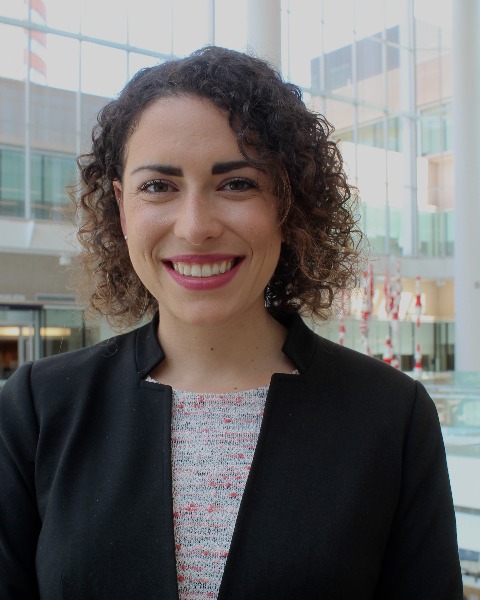Characterization of Fungal Infections in Critically Ill Surgical Patients
-

Gabrielle Albaz, PharmD,
Critical Care Pharmacist Specialist
UPMC Pinnacle
Harrisburg, PennsylvaniaDisclosure information not submitted.
-
JW
Julia Weiner, BCPS, PharmD
PharmD
Hospital of The University of Pennsylvania, United StatesDisclosure information not submitted.
-

Todd Miano, PharmD, PhD
Critical Care Pharmacist
University of Pennsylvania Perelman School of Medicine
Philadelphia, Pennsylvania, United StatesDisclosure information not submitted.
-
MC
Meghan Caylor, BCCCP, BCPS, PharmD
PharmD
Temple University Hospital, United StatesDisclosure information not submitted.
-

Jaime Gray, BCCCP, PharmD, FCCM
System Director of Medication Safety and Policy
Temple University Hospital
Philadelphia, PennsylvaniaDisclosure information not submitted.
-
SB
Shawn Binkley, PharmD
PharmD
Hospital of the University of Pennsylvania, United StatesDisclosure information not submitted.
-
KH
Keith Hamilton, MD
Dr.
Hospital of the University of Pennsylvania, United StatesDisclosure information not submitted.
First Author(s)
Co-Author(s)
Title: Characterization of Fungal Infections in Critically Ill Surgical Patients
Introduction: Critically ill patients are at risk for fungal infections which can lead to significant morbidity and mortality. General risk factors for fungal infections have been identified, however, surgical patients have been under-represented in these studies. The aim of this study is to describe the incidence of the fungal infection in a general surgical ICU at a large academic medical center. Additionally, this study will aim to identify patient specific characteristics in those that develop fungal infections, classify timing of fungal infection, and evaluate the use of empiric antifungals.
Methods: A single-center retrospective characterization study was conducted on all adult patients treated by the surgical critical care (SCC) service from March 2017 to March 2020. Patients were excluded if their fungal culture was not clinically relevant or an initial positive fungal culture was obtained prior to hospital admission.
Results: During the study period the SCC service treated 3,437 patients, of which 161 patients had clinically relevant fungal cultures and were included. The overall incidence of fungal infections was 4.68%. Majority of the patients were white males with a median SOFA score of 3 (IQR 1-7). Fungal infections were most common during the initial ICU admission (44.7%) and following the index surgical procedure (54.0%). Common patient specific characteristics related to the risk of fungal infections included: broad spectrum antimicrobial exposure (65.8%), hyperglycemia (40.4%), immunosuppressive therapy (36.7%), and having a CVC (31.1%). The most common fungal species cultured was Candida albicans (56.80%) from a fluid culture (55.9%). Only 8.1% of patients had inappropriate empiric therapy due to dose dependent or resistant organisms. Time to empiric antifungal therapy was 17.9 hours (IQR -1.42-5.12). Overall mortality was 30% and in an adjusted logistic regression, early antifungal therapy was associated with a lower odds of mortality, however this was not statistically significant.
Conclusions: Antifungals that cover Candida albicans appear to be an appropriate initial therapy in most SCC patients. Additionally, in patients with characteristics associated with higher risk of fungal infection, consider earlier antifungal initiation, with prudent stewardship practices for de-escalation.
